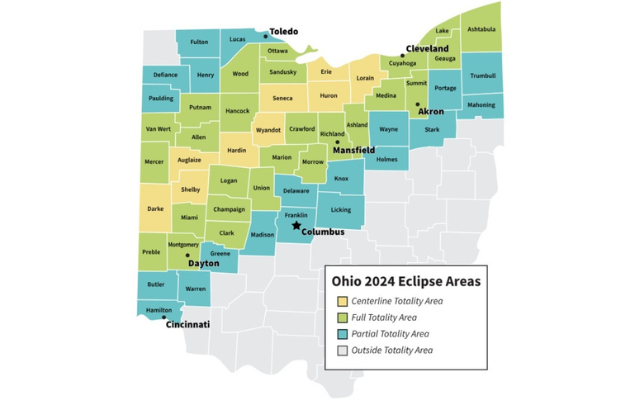Dominion Energy Offers Energy-Saving Tips To Consumers

To help customers minimize energy costs, while maximizing safety and comfort, Dominion Energy Ohio offers a variety of simple, inexpensive conservation tips for natural gas heating, water heating, cooking and clothes drying.
Heating: Your furnace or boiler accounts for 65 percent of the natural gas used in your home. These low-cost, and even no-cost, tips can help keep out cold air and maximize comfort while reducing heating bills:
- Save Money by Degrees: Customers can save from 10 to 15 percent on annual heating costs by setting the thermostat at 68 degrees during the day and down to 58 degrees at night, or when the resident is at work or away for an extended period. A programmable thermostat will automatically raise and lower the settings to a preset schedule and eliminate operating the heating system manually. It’s not recommended to turn the system off, especially on very cold days, because the recovery time may negate any savings realized by the setback.
- Clean or Replace Furnace Filters: Check furnace air filters once a month during the heating season. If they become clogged, clean or replace with new filters.
- Annual Inspection: Dominion Energy Ohio reminds customers that an annual furnace inspection by a qualified, reputable heating contractor can ensure that they receive maximum winter heating safety, comfort and efficiency. Besides helping customers receive maximum value for their heating dollars, an annual appliance inspection can prevent any potential carbon monoxide problems. Carbon monoxide (CO) detectors provide a second line of defense, but they should not be used as a substitute for an annual furnace inspection. Combined with an annual inspection, however, a single CO detector, placed in the sleeping area of a home offers additional peace of mind.
- Energy Audit: Dominion Energy Ohio’s Home Performance with ENERGY STAR (HPwES) Program through CLEAResult has been designed to help our residential customers improve their homes’ energy efficiency. It all starts with a home energy assessment. Whether customers are making energy-efficient improvements to their current home or recently purchased a new home, they can benefit from having a home energy assessment. Rebates up to $1,250 are available for eligible improvements. Customers may call 1-877-287-3416 to schedule an assessment or visitwww.deohpwes.com for program details and eligibility information.
- Caulk Around: Use inexpensive caulking around the fireplace mantle, inside windows and storm windows, electrical receptacle boxes, exhaust fan openings, pipes leading to bathroom fixtures, mortar cracks in chimneys, cracks in basement walls. Be sure to caulk around areas where the foundation meets the first floor plate and basement windows.
- Don’t Build a Fire When the Furnace is On: A roaring blaze actually can waste energy by drawing heated air up the chimney. If you do use the fireplace, turn down the thermostat. Close the chimney damper after the ashes are cold. Always remember to open the damper before lighting a fire.
Water Heating: Your water heater accounts for 25 percent of every natural gas dollar spent. Use these common-sense tips to maximize the value of your natural gas water heater:
- Lower the Thermostat: Set your water heater to “warm,” or 120 degrees F, which is high enough for normal household needs. The 120 degree F setting saves energy, slows lime buildup and reduces the risk of burns from hot tap water.
- Use Less Hot Water: Take shorter showers (three minutes) instead of baths. Switch to lower wash water temperatures for all your laundry and rinse in cold water.
Cooking: Ranges, ovens, grills and other cooking appliances, account for about 6 percent of natural gas use in your home. These tips will help you prepare tasty meals with delicious energy savings:
- Preheat the Oven Only When Necessary: Preheat the oven at the temperature you intend to use for only 10 minutes. A higher setting only wastes natural gas and will not preheat any faster.
- Don’t Peek: Every time you open the oven door, you pay a penalty of 25 degrees. You end up having to use more gas to replace that lost heat.
- Keep it Under Cover: Reduce cooking time and energy use by covering pots, pans and casserole dishes. Try cooking an entire meal in the oven. Bake pasta, rice or frozen vegetables with water in a covered casserole.
Clothes Drying: Gas dryers account for 4 percent of total household natural gas use. The following tips can help you enjoy maximum energy value from your gas dryer:
- Dry Full Loads: Save gas and money by combining your loads. Always wash and dry a full load of clothes to make the best use of your appliances and energy dollars.
- Keep the Lint Screen Clean: Clean the lint filter after every load. Unless the lint screen is cleaned, the dryer will not operate at top efficiency.
Nearly 7.5 million in 18 states energize their homes and businesses with electricity or natural gas from Dominion Energy (NYSE: D), headquartered in Richmond, Va. The company is committed to sustainable, reliable, affordable, and safe energy and is one of the nation’s largest producers and transporters of energy with about $100 billion of assets providing electric generation, transmission and distribution, as well as natural gas storage, transmission, distribution, and import/export services. As one of the nation’s leading solar operators, the company intends to reduce its carbon intensity 60 percent by 2030. Through itsDominion Energy Charitable Foundation, as well as EnergyShare and other programs, Dominion Energy contributed more than $30 million in 2018 to community causes throughout its footprint and beyond. Please visit www.DominionEnergy.com to learn more.



